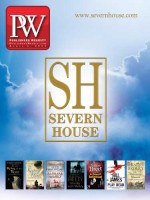Actor Colin Firth faltered, found his footing, and finally spoke like a true noble by the end of the 2010 film The King’s Speech. Now he’s teamed up with historian Anthony Arnove to let The People Speak: Voices that Changed Britain. This olio of broadsides, speeches, letters, poems, and other documents is a paean to the past millennium of Britain’s rich history.
Firth writes that “much of what we accept as civilised or decent, began as treason.” Is it possible to distinguish in the moment an act that future generations will regard as nobly treasonous from one that they will regard as timelessly foolhardy?
History serves as some guide in assessing the present moment, but that can only go so far. There are times when something that was once deemed foolish or ill-advised becomes that bold, galvanizing act that people see as a turning point. That’s one of the things about history—there are no guarantees. The only thing we can know with a certainty is that a failure to act will allow other forces to continue to carry the day.
How did you go about reconciling your own personal aesthetics with a grander notion of British aesthetics? Is there such a thing as a “national aesthetics”?
There are variants of national sensibilities; they certainly aren’t monolithic. We definitely were conscious of what we might want to do differently for a primarily U.K. audience than a primarily U.S. one. Colin felt, rightly, that humor would be important. We open our book with a scene from Monty Python and the Holy Grail to establish that immediately with our readers.
What does the epigraphical use of that scene—wherein a peasant, upon meeting “Arthur, King of the Britons,” is incredulous to discover that he is living under a monarchy and not in “an autonomous collective”—say about Britain’s sense of itself?
It raises a profound question: Who are the Britons? What has been the cost of this identity? Who has it excluded or forcibly brought into its scope? It also questions the basis of monarchy, as Thomas Paine does in an equally humorous and sharp selection later in the book. He argues that “the idea of hereditary legislators is as inconsistent as that of hereditary judges... and as ridiculous as an hereditary poet-laureate.”
Y’all include a Facebook post, but no tweets. Were there certain kinds of textual artifacts you excluded from consideration?
We would’ve been happy to include a tweet if we’d found the right one. Protest and dissent can take many forms. There are limits to what one can say or do with 140 characters, but some of the most eloquent political protests have been uttered in fewer—sometimes, in only two: “No.”



 Volume 260
Issue 13
04/01/2013
Volume 260
Issue 13
04/01/2013





